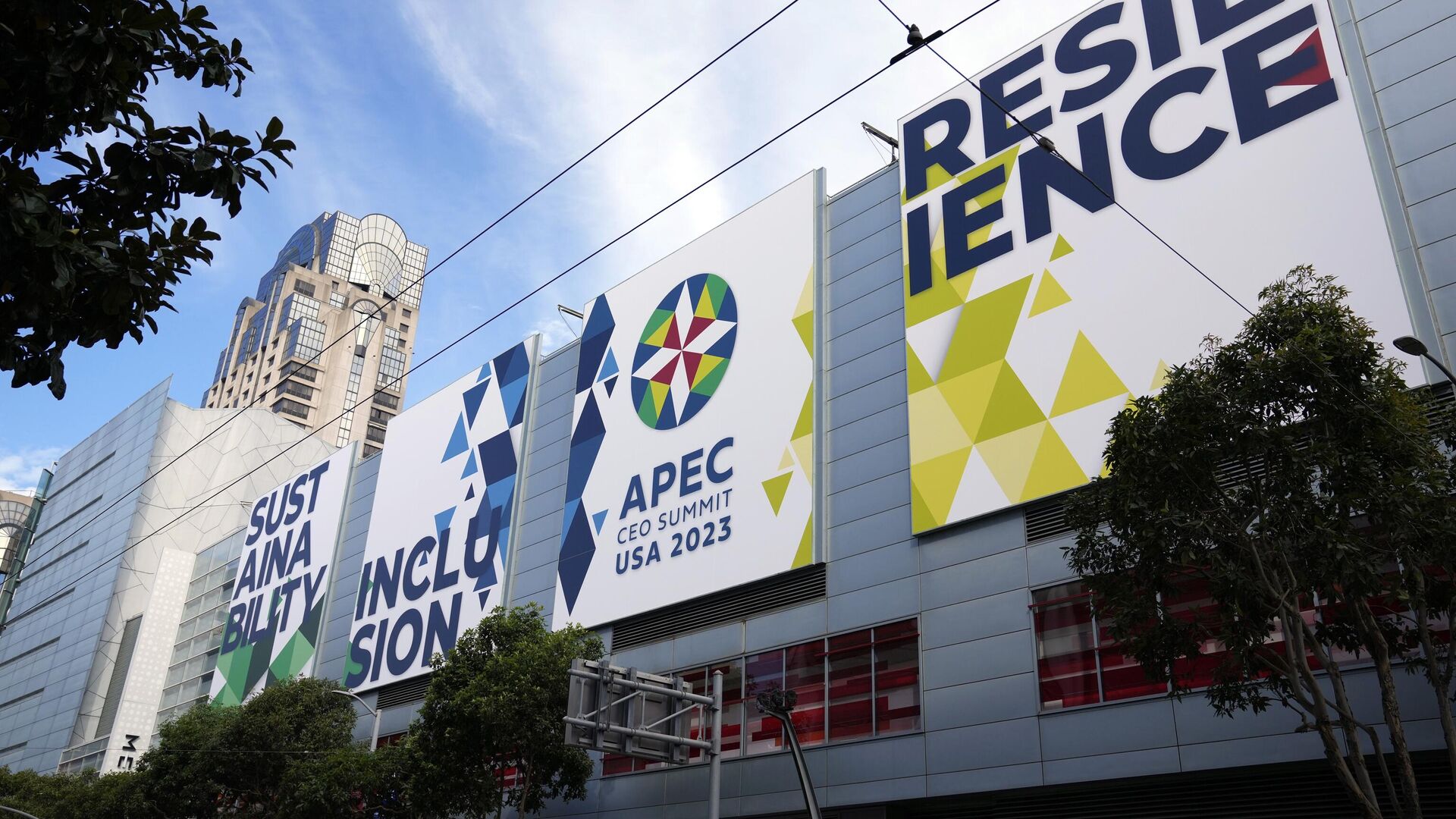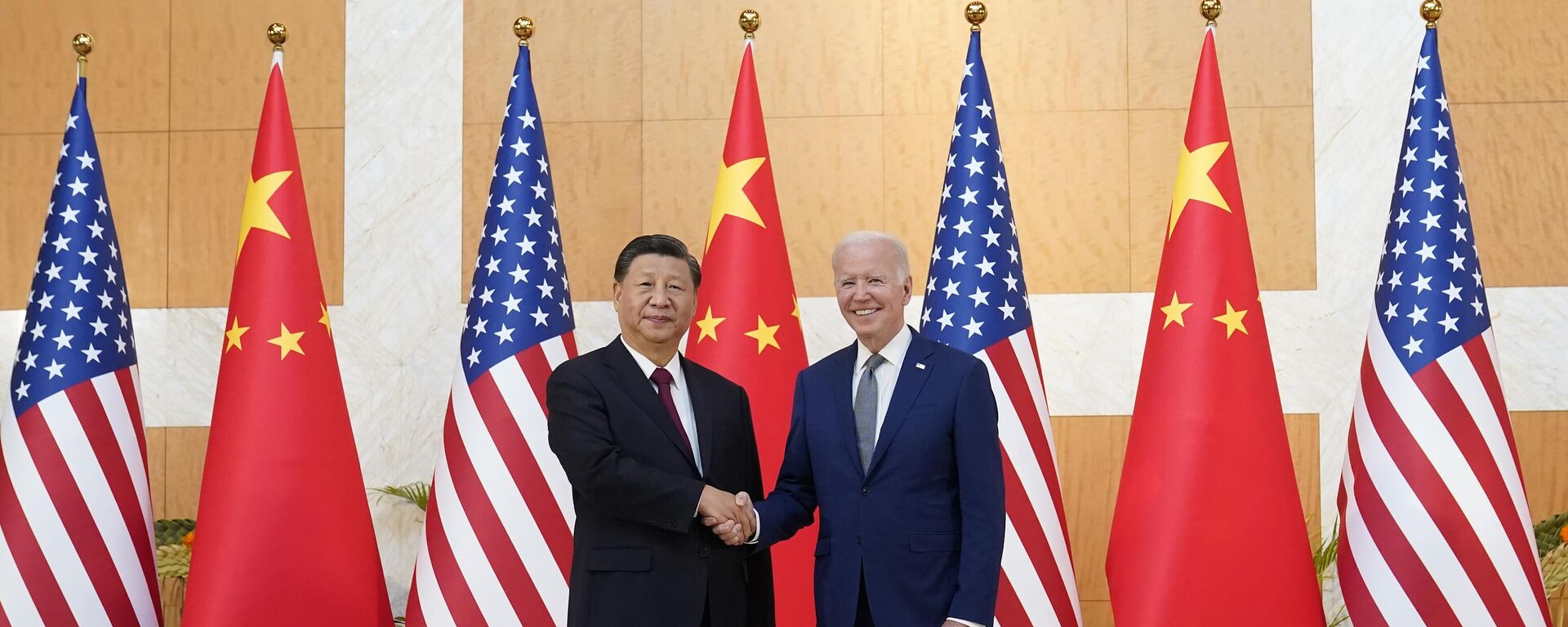https://sputnikglobe.com/20231114/senator-calls-to-block-chinese-firms-from-us-ev-tax-credits-despite-biden-xi-reengagement-push-1114942098.html
Senator Calls to Block Chinese Firms From US EV Tax Credits Despite Biden-Xi Reengagement Push
Senator Calls to Block Chinese Firms From US EV Tax Credits Despite Biden-Xi Reengagement Push
Sputnik International
Sen. Joe Manchin (D-W.Va.) sent a letter to the Treasury Department urging moves to prevent companies that source critical minerals from foreign adversaries, such as China, from claiming electric vehicle tax credits.
2023-11-14T13:20+0000
2023-11-14T13:20+0000
2023-11-14T13:20+0000
world
us
china
sen. joe manchin (d-west virginia)
batteries
senate energy and natural resources committee
electric vehicles
inflation reduction act
https://cdn1.img.sputnikglobe.com/img/07e7/0b/0e/1114949195_0:320:3072:2048_1920x0_80_0_0_c18e9e91eb48b418a6439713245151ad.jpg
While the Biden administration is putting on a show of trying to manage its tension-fraught relationship with China, Sen. Joe Manchin (D-W.Va.) is not making this task any easier.Ahead of the meeting between the US president and his Chinese counterpart, Xi Jinping, the Democratic Senator from West Virginia piled more pressure on Joe Biden. The Senate Energy and Natural Resources Committee chair sent a letter to the Treasury Department administration on Monday, urging tweaks to the implementation of the Inflation Reduction Act (IRA).Specifically, the Democratic senator is pushing for a narrower interpretation of "electric vehicle incentives" contained in the IRA, referencing its Section 30D of the New Clean Vehicle Credit (30D). In his letter addressed to Treasury Secretary Janet Yellen, he called for companies that source critical minerals from foreign adversaries such as China to be prevented from being rewarded with the abovementioned electric vehicle tax credits.The US senator claimed his concerns were rooted in rumors that Chinese battery companies were hoping to avail themselves of these credit opportunities.US tax incentives Congress provided for "domestic manufacturers, and our friends and allies," the politician wrote, "cannot be allowed to be hijacked by adversaries engaging in mineral laundering." Ever since Congress passed the Inflation Reduction Act, implementation of its amendments to Section 30D has been a holdup, as it awaits guidance from the Treasury Department on what exactly constitutes a “Foreign Entity of Concern." Manchin has been arguing that the rules were specifically aimed at weaning US battery supply chains away from China.One glaring example is the situation regarding Ford Motor Co. It has a deal to license the technology of Chinese battery manufacturer Contemporary Ampler Technology Limited (CATL) for use in its $3.5 billion planned battery plant in Michigan. However, whether this arrangement will meet the Treasury's tax credit accessing standards is yet to be determined, with the plant project suspended.Biden-Xi Sit-DownThe letter from Joe Manchin comes as Joe Biden and Xi Jinping are set to meet at the Asia-Pacific Economic Cooperation (APEC) summit held in San Francisco from November 11 to 17. As it is, experts are not holding their breath regarding likely outcomes from the sit-down. It has been noted, however, that among the current US-China reengagement efforts, Biden and Xi are expected to broach restoration of communications between the two countries’ militaries. With next year’s US presidential election looming, the Biden team has been on a trajectory aimed at tempering the mutual acrimony of recent years. Hence the flurry of visits to China by US officials, the most recent of which was Janet Yellen. Following talks with Chinese Vice Premier He Lifeng, the US Treasury secretary said the two sides had agreed that in-depth, frank talks between the United States and China are important, and that it was crucial to "maintain resilient lines of communication going forward."US-China Track RecordRelations between Beijing and Washington have been steadily deteriorating since Biden’s predecessor Donald Trump unleashed a trade war against China. Since then, the United States has sought to target Chinese tech companies with economic sanctions, and over the last year - trying to constrict Beijing's access to cutting-edge chips and the manufacturing equipment. The restrictions, along with Washington's CHIPS and Science Act of 2022, were portrayed as limiting China's technological prowess. The US government cited national security concerns, claiming that it was restricting the export of cutting-edge technologies that China could use for military purposes or to enhance its domestic semiconductor capabilities.In response, China warned that the industrial policy bill to support the local producers of semiconductors would disrupt global supply chains and hamper international trade. In retaliation for US trade restrictions targeting Chinese technology, Beijing imposed curbs on the export of graphite, a key battery metal. The decision, conveyed jointly by the Ministry of Commerce and the General Administration of Customs, cited national security concerns, and came days after the United States enforced further restrictions on the types of semiconductors that American corporations can supply to Chinese firms. China's graphite move followed controls it implemented on gallium, critical to the production of microchips. Amid the semiconductor trade spat with Beijing that Washington launched, America’s own semiconductor companies responded with the warning that such measures could backfire, eviscerating their own businesses.
https://sputnikglobe.com/20231021/ev-demand-boom-faces-hurdle-as-china-tightens-grip-on-graphite-supply-1114390388.html
https://sputnikglobe.com/20231113/xi-biden-meeting-at-apec-wont-change-direction-of-china-us-relations--1114931394.html
https://sputnikglobe.com/20231111/us-tries-good-cop-bad-cop-routine-in-dialogue-with-china-1114891231.html
https://sputnikglobe.com/20231006/us-chipmakers-warn-bidens-semiconductor-spat-with-china-could-backfire-1113973804.html
china
Sputnik International
feedback@sputniknews.com
+74956456601
MIA „Rossiya Segodnya“
2023
News
en_EN
Sputnik International
feedback@sputniknews.com
+74956456601
MIA „Rossiya Segodnya“
Sputnik International
feedback@sputniknews.com
+74956456601
MIA „Rossiya Segodnya“
us-china trade war, ira electric vehicle tax credits, us ev tax credits, electric vehicle incentives in ira, inflation reduction act, critical minerals, minerals in electric vehicles, biden-xi meeting at asean summit,
us-china trade war, ira electric vehicle tax credits, us ev tax credits, electric vehicle incentives in ira, inflation reduction act, critical minerals, minerals in electric vehicles, biden-xi meeting at asean summit,
Senator Calls to Block Chinese Firms From US EV Tax Credits Despite Biden-Xi Reengagement Push
The meeting between US President Joe Biden and his Chinese counterpart Xi Jinping on the margins of the APEC Leaders' Summit will come amid simmering tensions between the sides over Sino-American tit-for-tat trade restrictions, the Taiwan issue, US military buildup in the Asia-Pacific, and the latest spiral of the Palestine-Israel conflict.
While the Biden administration is putting on a show of trying to manage its
tension-fraught relationship with China, Sen.
Joe Manchin (D-W.Va.) is not making this task any easier.
Ahead of the meeting between the
US president and his Chinese counterpart,
Xi Jinping, the Democratic Senator from West Virginia piled more pressure on Joe Biden. The Senate Energy and Natural Resources Committee chair sent a letter to the
Treasury Department administration on Monday, urging tweaks to the implementation of the
Inflation Reduction Act (IRA).
The IRA, signed into law by Biden in August 2022, commits $300 billion toward deficit reduction, in addition to providing approximately $369 billion in funding for energy security, including tax credits for US-made electric vehicles and subsidies to US consumers, and $80 billion to increase Internal Revenue Service tax enforcement and operations.
Specifically, the Democratic senator is pushing for a narrower interpretation of "electric vehicle incentives" contained in the IRA, referencing its Section 30D of the New Clean Vehicle Credit (30D).
In his letter addressed to Treasury Secretary Janet Yellen, he called for companies that source critical minerals from foreign adversaries such as China to be prevented from being rewarded with the abovementioned electric vehicle tax credits.
"I urge you to impose the strictest possible standards for FEOCs [Foreign Entity of Concern] to ensure the minerals in electric vehicles are, to the greatest extent possible, sourced in the United States or from legitimate allies," he wrote.
The US senator claimed his concerns were rooted in rumors that Chinese battery companies were hoping to avail themselves of these credit opportunities.
"I am incredibly concerned by recent reports that suggest Chinese battery companies are actively pursuing business opportunities and arrangements, including joint ventures and investments, in South Korea and Morocco to take advantage of the IRA," he added.
US tax incentives Congress provided for "domestic manufacturers, and our friends and allies," the politician wrote, "cannot be allowed to be hijacked by adversaries engaging in mineral laundering."
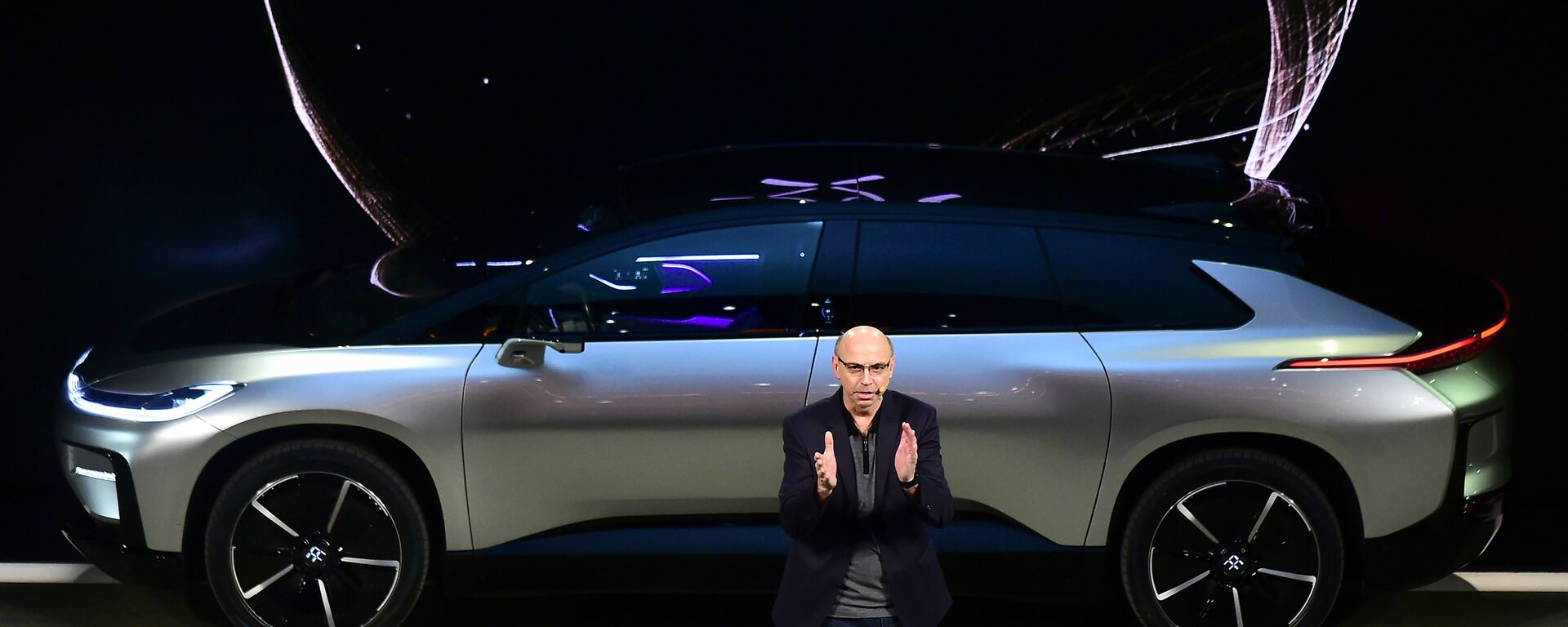
21 October 2023, 16:23 GMT
Ever since Congress passed the Inflation Reduction Act, implementation of its amendments to Section 30D has been a holdup, as it awaits guidance from the Treasury Department on what exactly constitutes a “Foreign Entity of Concern." Manchin has been arguing that the rules were specifically aimed at weaning US battery supply chains away from China.
One glaring example is the situation regarding Ford Motor Co. It has a deal to license the technology of Chinese battery manufacturer Contemporary Ampler Technology Limited (CATL) for use in its $3.5 billion planned battery plant in Michigan. However, whether this arrangement will meet the Treasury's tax credit accessing standards is yet to be determined, with the plant project suspended.
The letter from Joe Manchin comes as Joe Biden and Xi Jinping are set to meet at the Asia-Pacific Economic Cooperation (APEC) summit held in San Francisco from November 11 to 17. As it is, experts are not holding their breath regarding
likely outcomes from the sit-down. It has been noted, however, that among the current US-China reengagement efforts, Biden and Xi are expected to broach restoration of communications between the two countries’ militaries. With next year’s US presidential election looming, the Biden team has been on a trajectory aimed at tempering the mutual acrimony of recent years. Hence the flurry of visits to China by US officials, the most recent of which
was Janet Yellen.
Following talks with Chinese Vice Premier He Lifeng, the US Treasury secretary said the two sides had agreed that in-depth, frank talks between the United States and China are important, and that it was crucial to "maintain resilient lines of communication going forward."
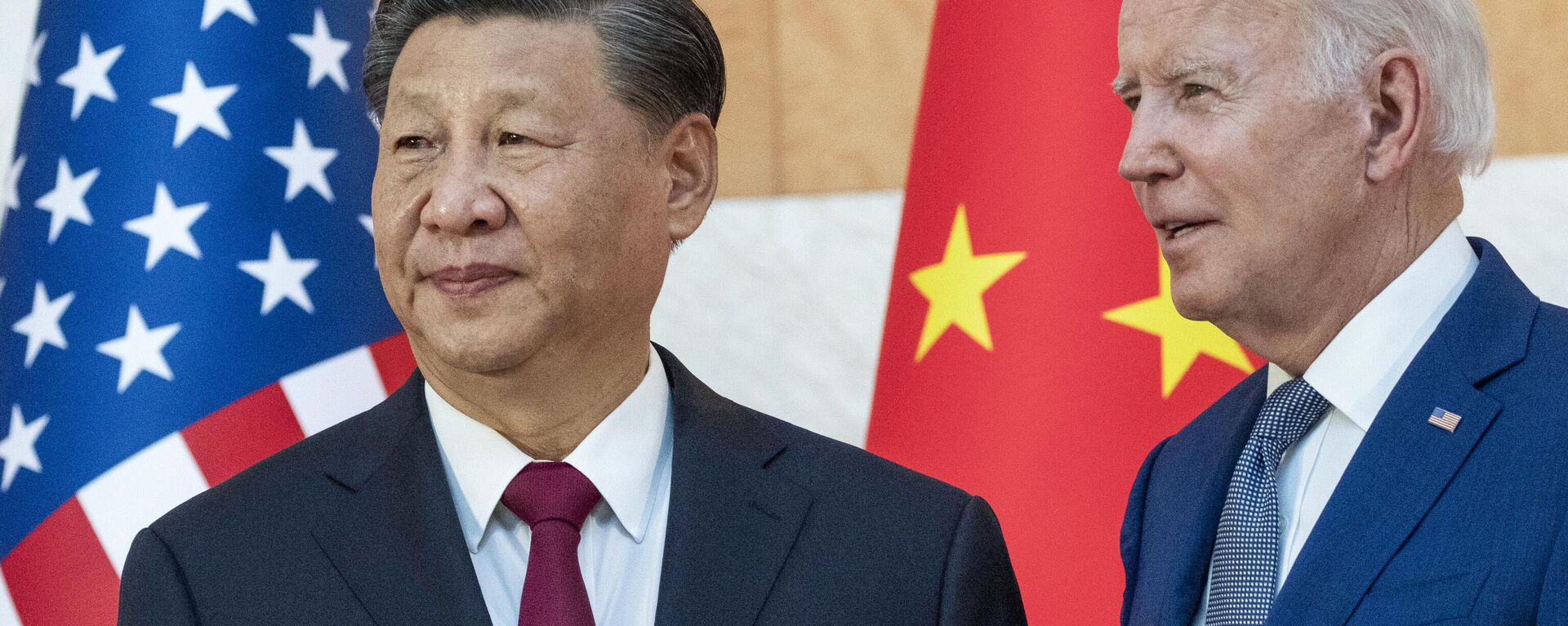
11 November 2023, 17:49 GMT
Relations between Beijing and Washington have been steadily deteriorating since Biden’s predecessor Donald Trump unleashed a trade war against China. Since then, the United States has sought to target Chinese tech
companies with economic sanctions, and over the last year - trying to constrict Beijing's access to cutting-edge chips and the manufacturing equipment. The restrictions, along with Washington's
CHIPS and Science Act of 2022, were portrayed as limiting China's technological prowess. The US government cited national security concerns, claiming that it was restricting the export of cutting-edge technologies that China could use for military purposes or to enhance its domestic semiconductor capabilities.
The global supply chain for vital minerals crucial in the production of electric vehicle batteries is heavily dependent on China. As per the US Department of Energy, the Asian nation is responsible for refining 60 percent of the world's lithium and an impressive 80 percent of cobalt.
In response, China warned that the industrial policy bill to support the local producers of semiconductors would disrupt global supply chains and hamper international trade. In retaliation for US trade restrictions targeting Chinese technology, Beijing imposed curbs on the export of graphite, a key battery metal. The decision,
conveyed jointly by the Ministry of Commerce and the General Administration of Customs, cited national security concerns, and came days after the United States enforced further restrictions on the types of
semiconductors that American corporations can supply to Chinese firms. China's graphite move followed controls it implemented on gallium, critical to the production of
microchips.
Amid the semiconductor trade spat with Beijing that Washington launched, America’s own semiconductor companies responded with the warning that such measures could backfire, eviscerating their own businesses.
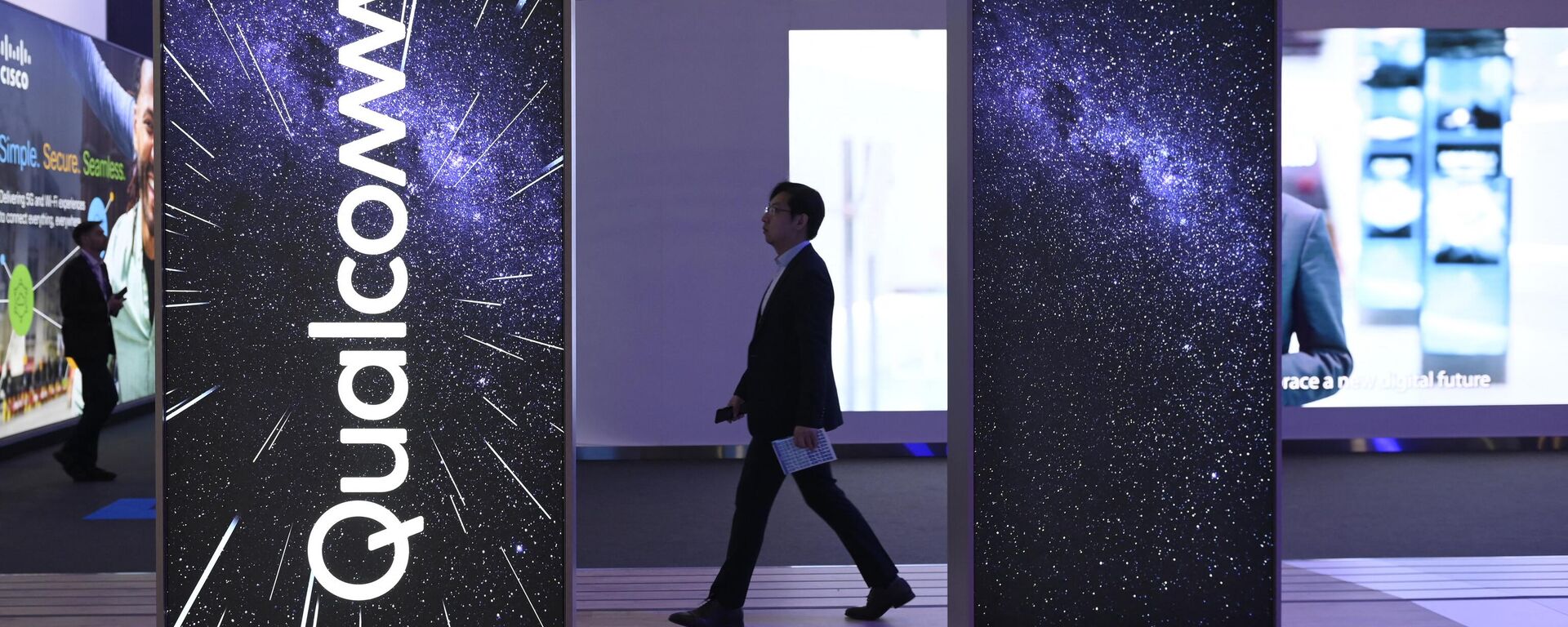
6 October 2023, 09:30 GMT
